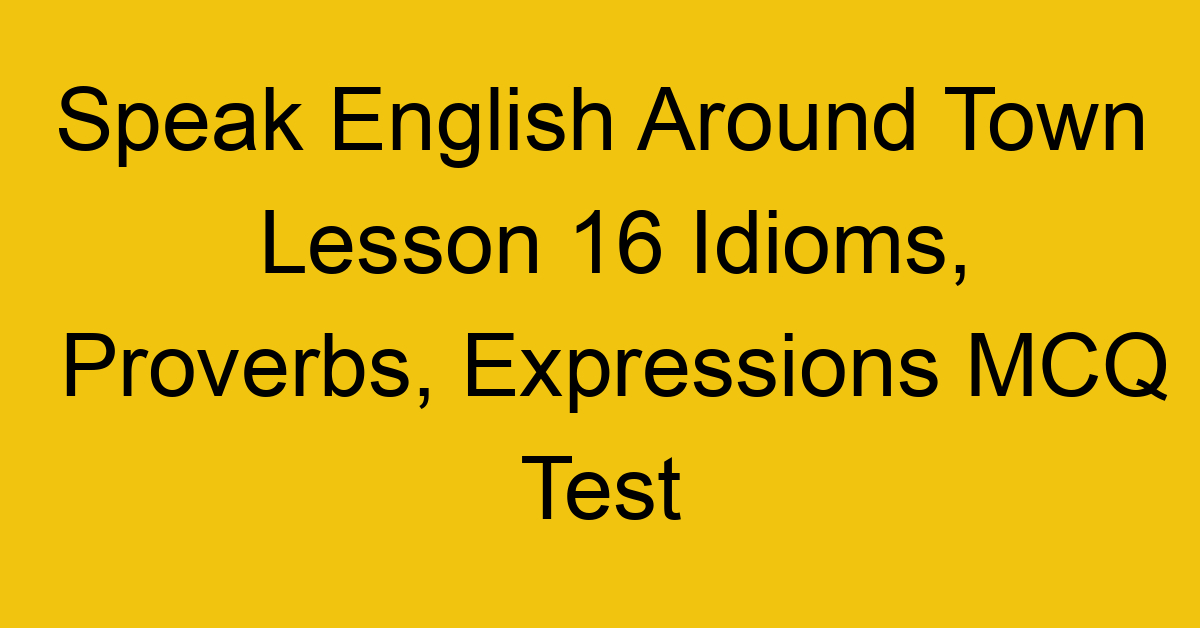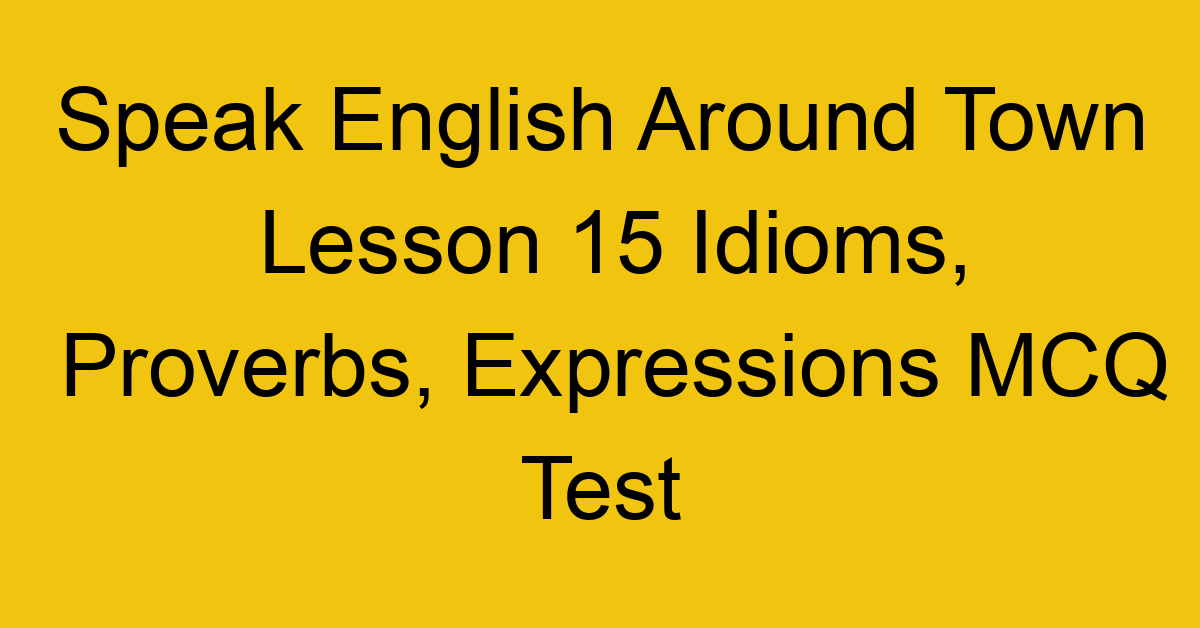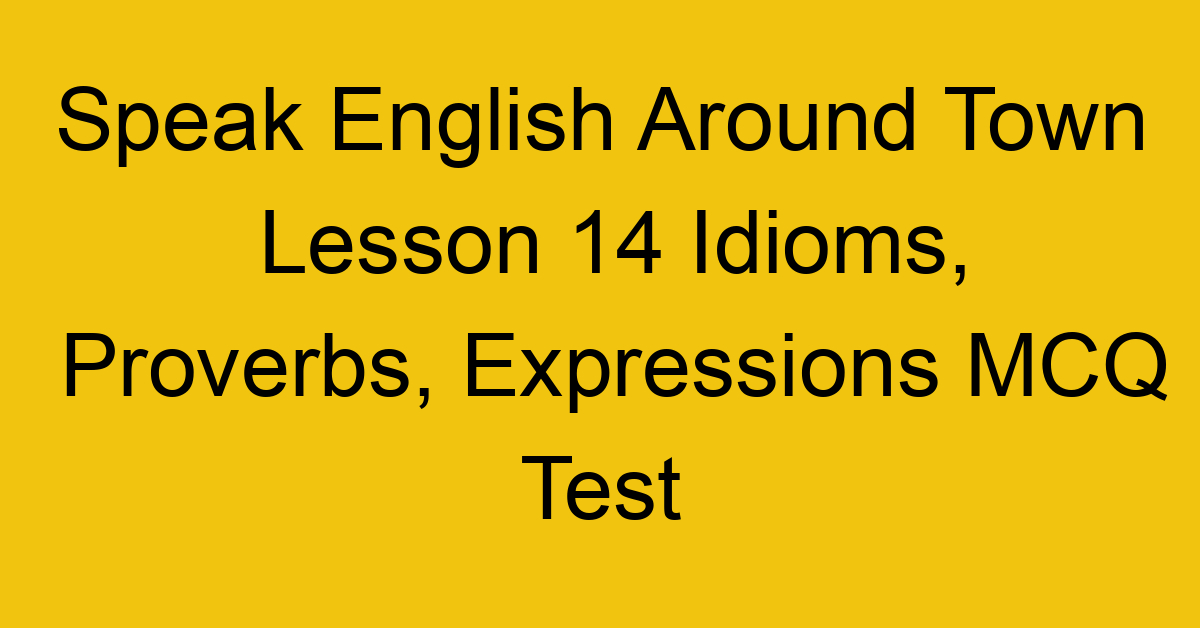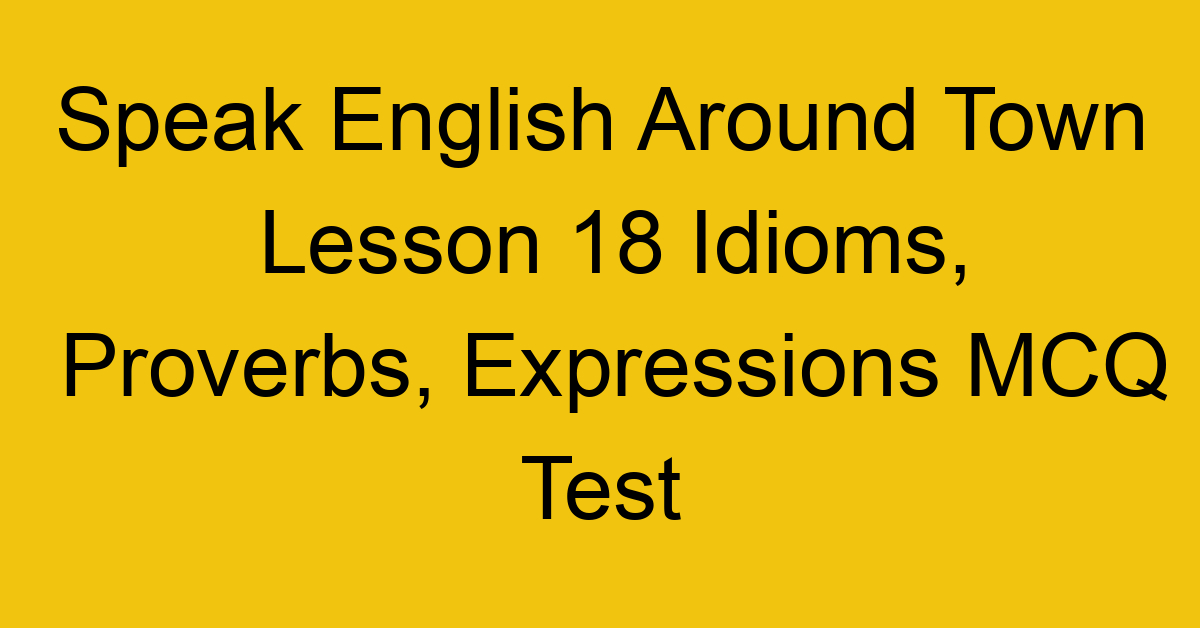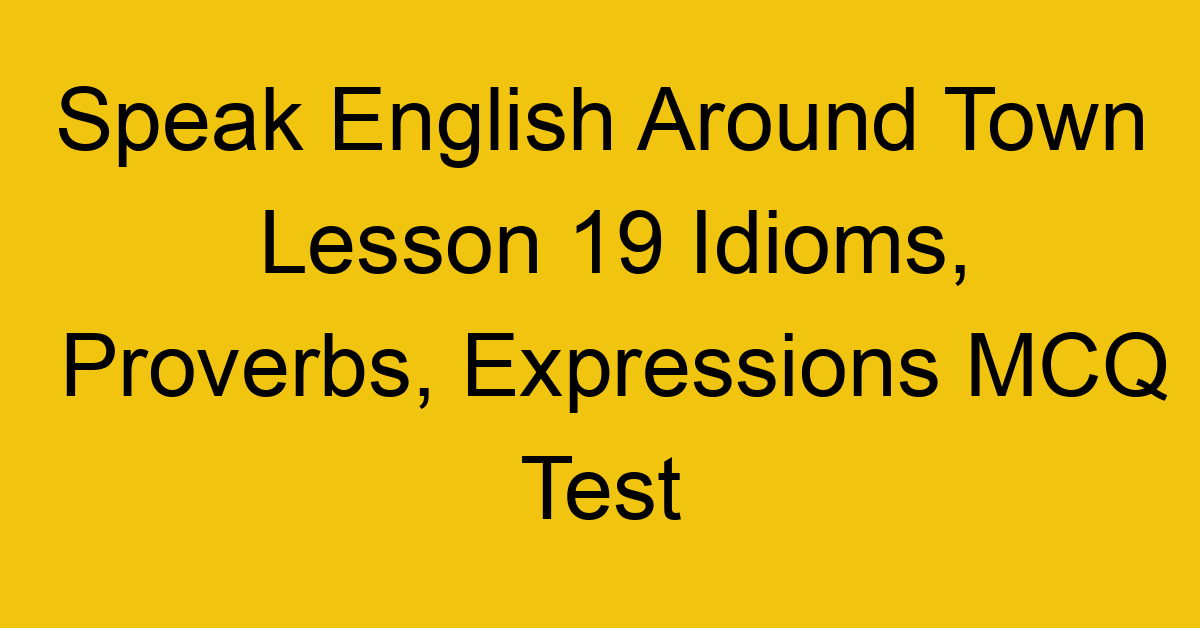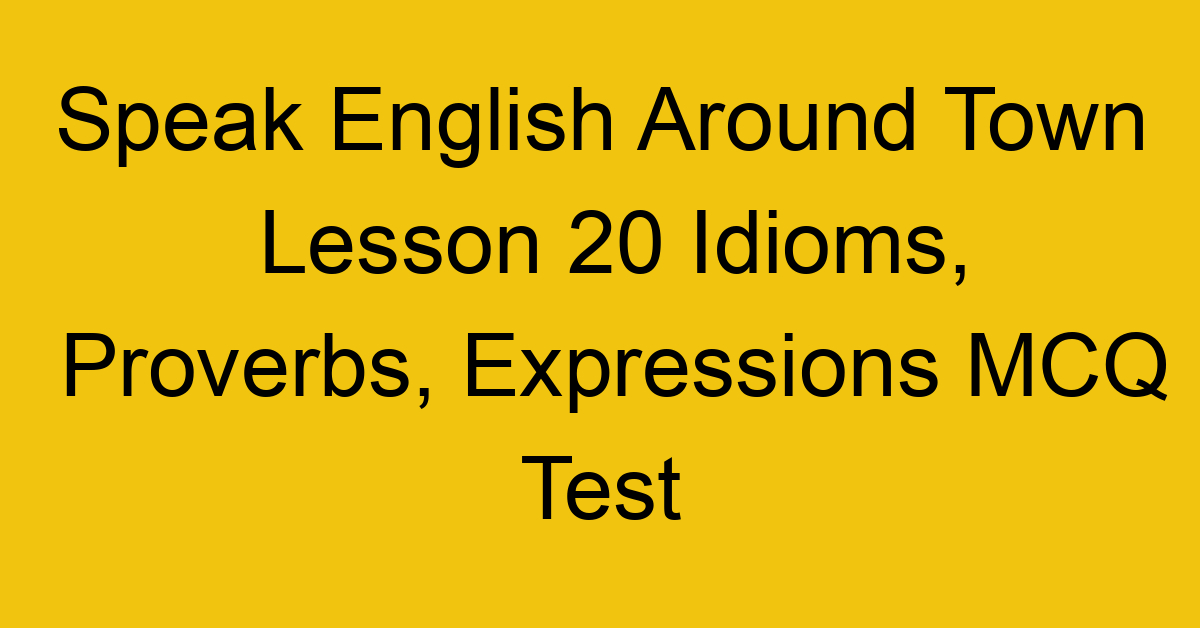Speak English Around Town Lesson 17 Idioms, Proverbs, Expressions MCQ Test
LESSON 17 – Dealing with Lost Luggage
DEALING WITH LOST LUGGAGE
Tom complains to Jim, a Flyaway Airlines representative, that his suitcase is lost. Jim asks him to fill out some paperwork and assures him his bag will likely be found.
Tom: Excuse me, I just arrived on the flight from Atlanta and my suitcase is missing.
Jim: Did you wait until all the bags were unloaded?
Tom: Yes, I did. My suitcase is not there.
Jim: Here’s a card with various suitcases. Which looks most like your piece of luggage?
Tom: It’s like this one, and it’s green.
Jim: Okay, I’ll just have you fill out this paperwork.
Tom: I had all my clothes for a meeting this afternoon in that bag. Now I’m in a bind.
Jim: We’ll reimburse you for clothing you buy today for up to $100.
Tom: I’m really pressed for time. I won’t have time to go shopping for a new suit now!
Jim: Well, we’ll do our best to track down your bag as quickly as possible.
Tom: What if my suitcase is lost for good?
Jim: Baggage usually turns up, so let’s cross that bridge when we come to it.
Tom: I’m really up the creek now. It boggles my mind how you can just lose someone’s luggage!
Jim: Let me give you a piece of advice. Next time, wear your suit on the airplane.
Tom: Thanks for the advice. Next time I think I’ll fly a different airline!
Language Lens: Count & Non-count Nouns
Count nouns (also called “countable nouns”) are people, places, or things that we can count. They can be singular (a chair, a cup, a cat) or plural (chairs, cups, cats).
Non-count nouns are materials, substances, concepts, information, etc. which we cannot count.
|
Here are some common non-count nouns: |
||
|
accommodation |
furniture |
postage |
|
advice |
garbage |
progress |
|
air |
homework |
research |
|
baggage |
information |
software |
|
bread |
knowledge |
sugar |
|
butter |
love |
traffic |
|
clothing |
luggage |
trouble |
|
equipment |
money |
water |
|
energy |
music |
weather |
|
fruit |
news |
work |
Non-count nouns:
=> We do not use “a/an” directly before non-count nouns. To express a quantity of one of these nouns, use a word or phrase like:
◼ a piece of: a piece of bread, a piece of advice, a piece of news
◼ a cup of: a cup of soup, a cup of water, a cup of tea
◼ some: some information, some news, some furniture
◼ a lot of: a lot of water, a lot of luggage, a lot of happiness
=> Non-count nouns are always singular. Remembering this can. help you avoid a lot of mistakes.
Say: This is good news! NOT: These are good news!
Say: The equipment is heavy. NOT: The equipment arc hcarry.
Say: The information is valuable. NOT: The infonnation are valuable.
Say: My luggage is heavy. NOT: My luggage are heairy.
Say: The money is in the bank. NOT: The money are in the bank.
Count nouns:
=> A singular count noun always takes either the indefinite article (a, an) or the definite article (the):
◼ Tracy is looking for a job.
◼ Did Tracy get the job she applied for?
=> A plural count noun takes the definite article (the) if it refers to a definite, specific group. It takes no article if used in a general sense (generalizations):
◼ The dogs you adopted are cute. ( specific => the)
◼ Dogs are fun pets. (general => no article)
Using the quantity expressions much, many, a little, a few:
Much/Many
=> Use much with non-count nouns:
◼ How much change should we bring?
◼ I wish you much happiness. (I wish you a lot of happiness).*
=> Use many with count nouns:
• How many quarters should we bring?
• I took many great classes. (I took a lot of great classes).*
* Note: In statements like these, you can also use “a lot of” instead of “much” or “many.” It sounds more conversational.
Little/A Few
=> Use little with non-count nouns:
◼ We have made little progress since the summer.
◼ Sam has little money left.
=> Use few with count nouns:
◼ We have completed a few projects since the summer.
◼ Sam has a few dollars left.
IDIOMS
- (to) do one’s best
→ to try hard
Example: I’ll do my best to finish the report by Friday.
- (to) fill out paperwork
→ to complete one or more forms
Example: Before seeing the doctor, you’ll need to fill out this paperwork.
- for good
→ forever; permanently
Example: After graduating from college, Ryan moved back in with his parents. They hope he’ll move out for good soon.
- in a bind
→ in a difficult situation; in need of help
Example: Our school is in a bind. We need $10,000 to buy new textbooks, but there’s no money in our budget for it.
- it (or that) boggles my mind
→ I’m very surprised by that
Example: Some people spend $100 a day to send their dogs to a spa. That boggles my mind!
- let’s cross that bridge when we come to it
→ let’s not worry about that until we need to
Example: “What if we can’t find a buyer for our house?” – “Let’s cross that bridge when we come to it.“
- pressed for time
→ in a hurry; not having much time
Example: We asked the waiter to bring the check with dinner, explaining that we were pressed for time.
- (to) track down
→ to find (often after a long search)
Example: A Picasso was stolen from the Metropolitan Museum? I hope they can track down the thieves!
- (to) turn up
→ to be found
Example: Angela hopes her missing earring will turn up before the dance on Saturday.
- up the creek
→ in trouble; in a very difficult situation
Example: Our rent is due on Friday, and we have no money in our bank account. We ‘re up the creek!
NOTE: The longer form of this expression is: up the creek without a paddle.

